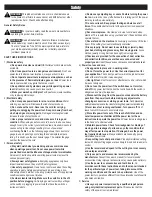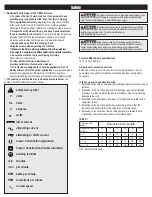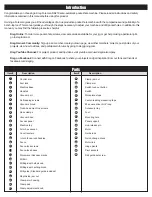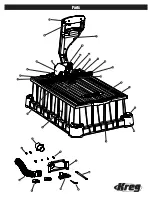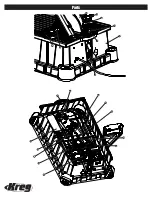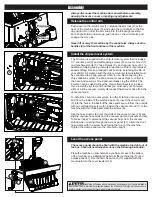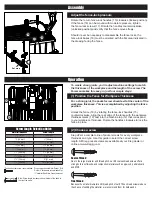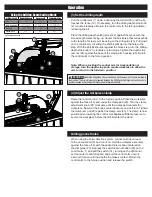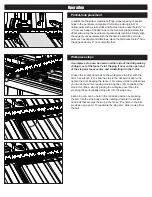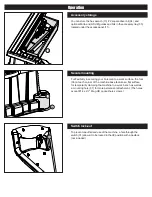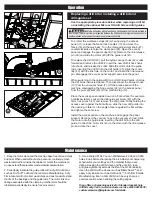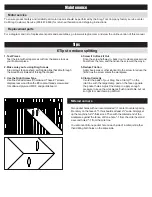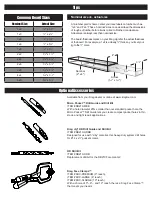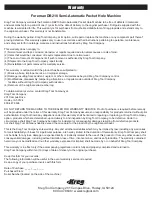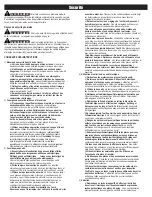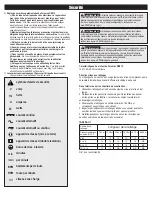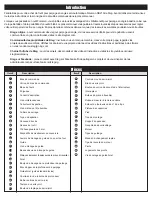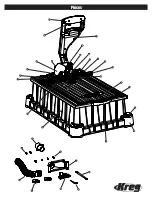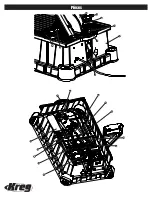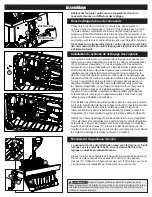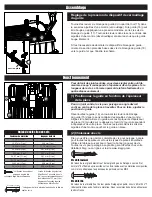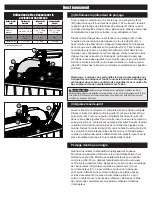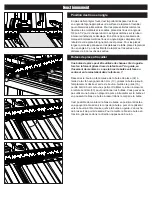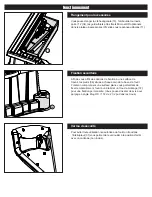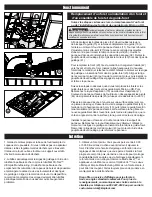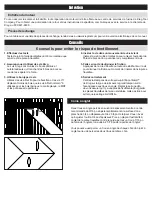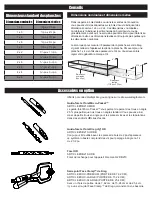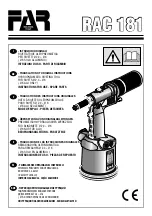
Two pocket holes with our recommended
9
⁄
16
" center-to center spacing
fit entirely on the face of
3
⁄
4
"-thick boards at least 2
3
⁄
8
" wide. Simply set
up the machine for
3
⁄
4
"-thick stock. Then with the mitered end of the
workpiece against the fence, drill one hole
7
⁄
16
" from the miter heel and
a second hole 2
5
⁄
16
" from the miter toe.
You also can drill one pocket hole on each side of a miter joint rather
than drilling both holes on the same side.
Mitered corners
1
⁄
2
"
2
5
⁄
16
"
Maintenance
To ensure product safety and reliability, all motor repairs should be performed by the Kreg Tool Company factory service center.
Call Kreg Customer Service (800.447.8638) for return authorization and shipping instructions.
Motor service
For a diagram and list of replacement parts and assemblies, go to www.kregtool.com and view the online version of this manual.
Replacement parts
1. Test Pieces
Test the joint with scrap pieces cut from the same stock as
your final workpiece.
2. Make sure you’re using Kreg Screws
Kreg screws feature sharp, self-tapping tips that slice through
the wood fibers instead of forcing them apart.
3. Use the Right Screw Type
Use fine-thread screws in hardwood. These #7 screws
displace less wood than the #8 coarse-thread screws used
for softwood, plywood, MDF, and particleboard.
4. Screw it In, Back it Out
Drive the screw half-way in, back it out to clear excess wood
fibers from the hole, and then drive the screw all the way in.
5. Reduce Friction
Apply bee’s wax or other lubricant to the screw to reduce the
friction as the screw enters the workpiece.
6. Clamp Correctly
Center the pads of your Kreg Face Clamp™ on the
joint line with the large clamp pad on the face opposite
the pocket holes. Adjust the clamp to apply enough
pressure to keep the workpieces flush and stable but not
so tight to make clamping difficult.
6 Tips to reduce splitting
Tips


